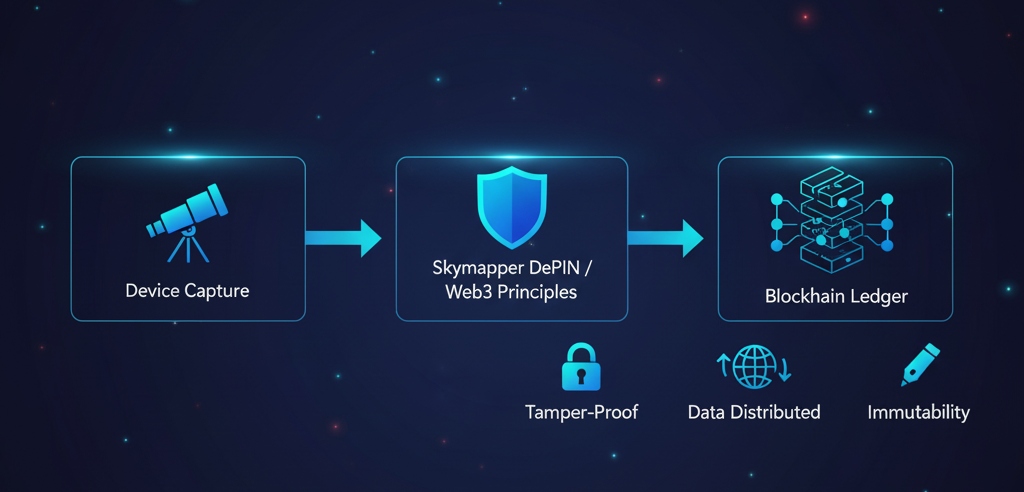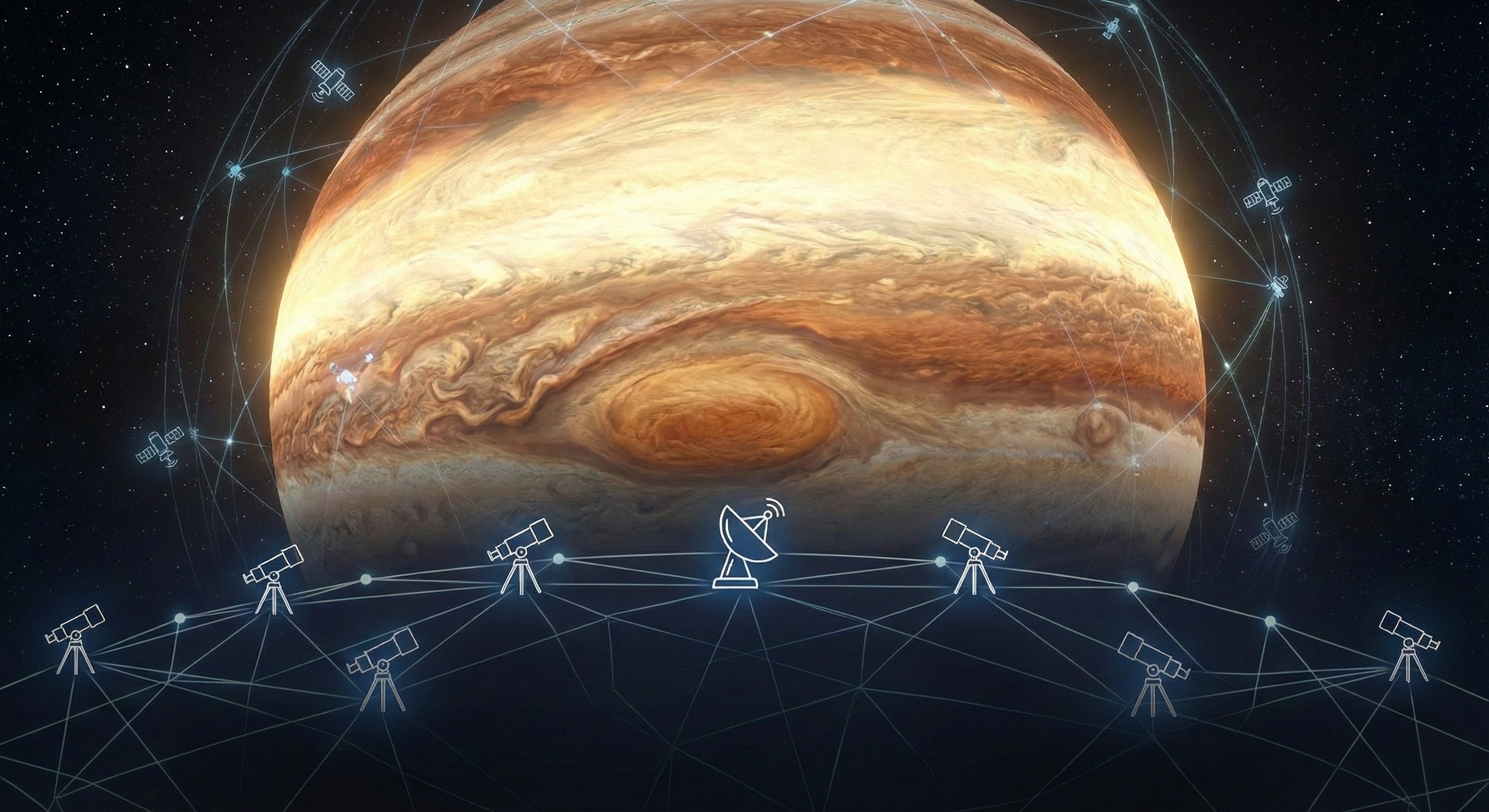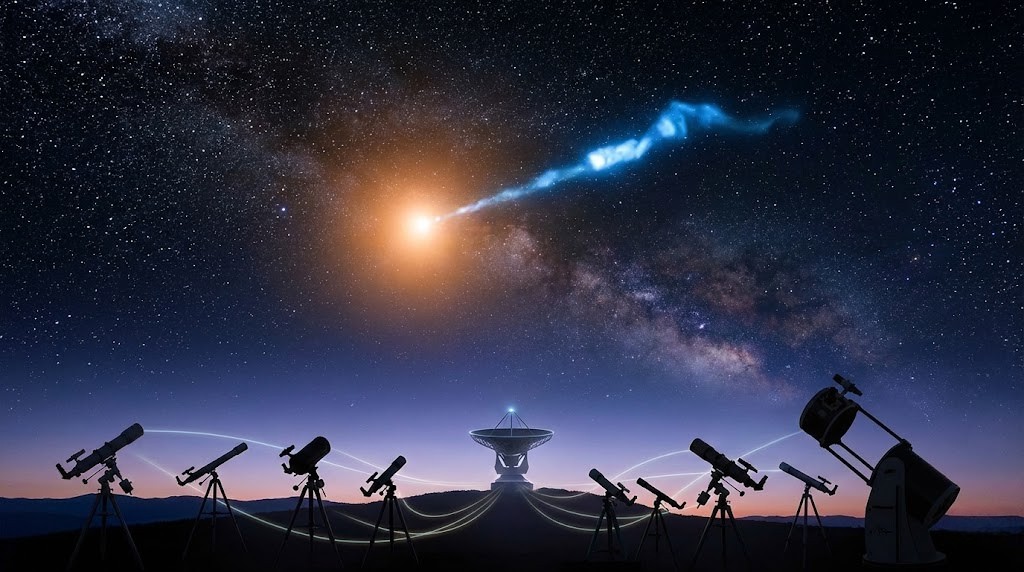
If you're reading this, you're likely aware that the internet is currently experiencing a wave of frustration. A major outage at Cloudflare, the global network that keeps countless websites running, has caused widespread disruption, taking down platforms like X (formerly Twitter), ChatGPT, and more. It’s a stark reminder, much like the recent AWS outage, of how fragile our centralized digital infrastructure can be.
When a single point of failure, like one massive cloud provider, stumbles, the entire world can grind to a halt.
But what if critical data, the kind that drives scientific discovery and our understanding of the universe, wasn't held hostage by a handful of corporate servers? This is precisely the issue that SkyMapper is solving for astronomical data through decentralization.
The Centralization Trap: Fragility in the Cloud
The modern internet is dangerously fragile due to concentration risk, a weakness vividly exposed by recent outages at major providers like Cloudflare and AWS. Our digital foundation is too heavily reliant on a small number of massive corporations. This efficiency comes at a dangerous cost:
- Single Point of Failure: When the Cloudflare or AWS region hosting critical services goes down, all dependent services, from social media to key business platforms, become inaccessible.
- Data Vulnerability: Centralized data storage makes a large swathe of information vulnerable to a single cyberattack, technical glitch, or administrative error.
- Restricted Access: Even without an outage, access to vast repositories of scientific data is often controlled by a few institutions, creating bureaucratic hurdles for global researchers and citizen scientists.
When the internet's "front door" is locked due to an outage, even if the data itself is fine, accessing it is impossible.
.png)
SkyMapper: Building Resilience into Cosmic Data
SkyMapper.io's mission is to revolutionize astronomical research by moving beyond this centralized fragility. By leveraging Web3 and blockchain technology, SkyMapper is building a Decentralized Physical Infrastructure Network (DePIN) for the cosmos.
Here’s why this decentralized approach is a game-changer when centralized cloud services fail:
1. No Single Point of Failure
Instead of storing all observation data on a single server farm in, say, Virginia, SkyMapper distributes it across a global network of independent nodes and telescopes. If Cloudflare or AWS suffers an outage, the data remains accessible through the peer-to-peer network. Researchers in different parts of the world can still access the cosmic records they need, ensuring uninterrupted scientific progress.
2. Immutable and Verifiable Data Integrity
SkyMapper secures every observation on the blockchain. This cryptographic verification ensures that the data is immutable (cannot be altered) and verifiable (its provenance and authenticity are transparent). When a centralized server goes down, the integrity of the data might be temporarily questionable but with a decentralized ledger, trust is maintained no matter the status of any single host.
3. Universal and Democratized Access
The SkyMapper platform is designed to make astronomical data freely available and accessible to researchers and enthusiasts worldwide. This open, decentralized model democratizes space exploration. An outage at a commercial cloud provider can't block a student or a citizen scientist from accessing the latest supernova image or asteroid tracking data. The network continues to function because its governance and data ownership are distributed.

The Path Forward for Critical Data
Cloudflare and AWS outages are more than just an inconvenience; they are a sign that we need to rethink how we manage critical, globally important data.
SkyMapper's decentralized model offers a blueprint for how vital scientific information, from deep space observations to aerospace situational data, can be stored with the resilience, integrity, and universal accessibility required for a truly global, collaborative future.
SkyMappers' crucial work, like the search for new exoplanets or the tracking of space debris, will remain online, even when a major cloud provider experiences an outage. Our commitment to decentralization ensures we're building a robust internet, one that can withstand any challenge. This guarantees that no matter what happens on Earth, the stars will always remain within our reach.
What are your thoughts on how decentralized networks like SkyMapper can protect essential scientific research from global cloud outages? Contact us, to let us know!






